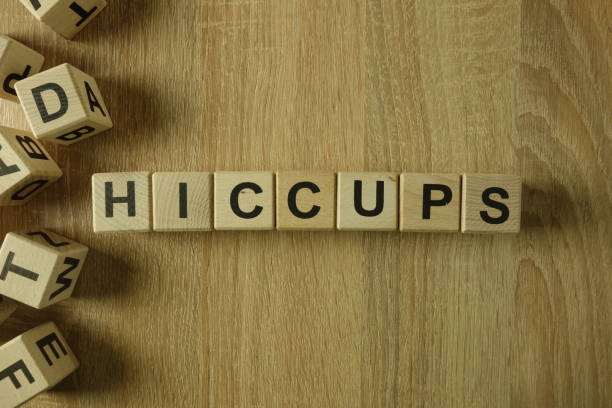
Click on the video above to see how you can stop hiccups
Hiccups - And How To Stop Them
Hiccups can be very annoying. We all know the old tricks of scaring someone suddenly or drinking a glass of water in an unusual position to try and stop them, but in this blog, we explore what they are, why you get them and some things you can try to stop or prevent hiccups. Luckily for most Hiccups does not affect your health.
So, just what are hiccups? Well, they’re sudden, involuntary contractions of the diaphragm muscle. As the muscle contracts repeatedly, the opening between the vocal cords snaps shut to check the inflow of air and makes the hiccup sound. Irritation of the nerves that extend from the neck to the chest can cause hiccups.Although associated with a variety of ailments (some can be serious such as pneumonia or when harmful substances build up in the blood for example from kidney failure), hiccups are not serious and have no clear reason for occurring.
What causes hiccups? Irritation of the nerves that extend from the neck to the chest can cause hiccups. Many conditions are associated with hiccups, but none has been shown to be the cause of them. Here are a few ways you can get them:
Although many people find some of these tips on how to deal with hiccups useful, they may not work for everyone.
Do:
Don’t
Hiccups are rarely a cause for concern, but if hiccups become frequent, chronic and persistent (lasting more then 3 hours), if they afftect sleeping patterns, interfere with eating, cause reflux of food or vomiting, occur with severe abdominal pain, fever, shortness of breath, spitting up blood or feeling as if the throat is going to close up see a doctor. Your GP will want to find out if your hiccups are caused by a health condition or medication you're taking – treating the condition or changing your medicine should stop your hiccups.
If there's no obvious cause, they might be able to prescribe medicine to treat your hiccups. This doesn't work for everyone.
We hope you found this blog useful, please share it if you did - and look out for our vlog on hiccups coming to you soon!
Share this blog
The Coda Team